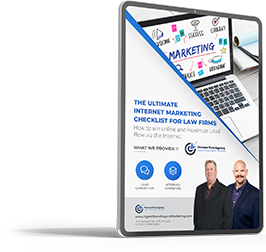
For many insurance agents, selling policies is easy. However, with the expansion of many insurance companies into the financial services arena, many agents may be wondering, “How do I sell these services to my insurance clients?” While there are many similarities, financial and insurance services are two fundamentally different things. While insurance involves preparing for future events, financial services involves management of clients’ money, both for now and the future. So, some agents may find it difficult to adapt their current style of selling or business model to selling financial services.However, just because it’s hard, doesn’t mean it’s impossible. It takes a little bit of time and of course, modifying one’s mindset. If you’re thinking of how you can best push your these services, before the “Fiduciary Ruling” goes into affect in 2017, then consider these 4 tips to help you out.
Tip #1: Become an Educator
One of the main problems an insurance and financial services producer might run into when selling financial services (or really, anything) is explaining to clients how their products work and how to match them to a specific client’s needs. Sure, insurance companies will train their agents on how to sell their products, but then the agents and their salespeople might become so engrossed in the sales process that they drive away potential customers who just want to know more. It’s alright to push for sales, of course, but you need to understand that your audience may not be able to understand what it is you are trying to sell. In many cases, they just simply aren’t at the “decision-making” phase of the buyer’s journey. Perhaps they’re at the start in the “Awareness” phase; they’re now aware that they need to be more fiscally disciplined, and they need to begin saving for retirement.
So, the trick here is to become a teacher, rather than a sales person. You need to be able to explain what it is you are selling, and more importantly, why they need it and how they can use it. To do that, you need to look at your client’s current situation and advise them accordingly – not just sell, sell, sell. You need to give them advice on what decisions they need to make for themselves and which products best fit their needs, even if you don’t sell them. While that doesn’t seem intuitive, what it does is position you as a “life coach” of sorts, giving them unbiased advice. In the short term, this won’t help you close more financial services, but once they are in the right stage of the buyer’s journey, for what you have to offer, they will be the ones to reach out to you.
Tip #2: Learn How to Tackle Difficult Subjects
Agents often have to deal with hard topics when selling policies – what happens if you lose your home, get into an accident or if you or a loved one dies? These services aren’t much different – what does the future hold for you? Will you be properly prepared when it comes time to retire? How will you pay for your home or car? Many people would prefer to bury their heads in the sand until it’s too late. Hopefully, as an agent, you already have methods of talking about such difficult topics with grace and ease when interacting with your clientele.
One way to do this would be not to look at the event itself, but rather, the effects. In the same way you would tackle life insurance, you have to talk about the future. For example, when talking about retirement, you can ask your potential clients what would they like to do once they retire – travel, start new hobbies, visit their grandchildren more, maybe even volunteer and contribute to their favorite charities at a higher rate? Well, of course the only way to make sure they can do everyting they want is to be able to have enough income during their retirement years to make all those things happen. Then, you can educate and show them how products like annuities and mutual funds can help them reach, or exceed, those goals!
{{cta(‘d5cfd355-e14a-4ec0-bb24-9685ce785785’)}}
Tip #3: Know How to Sell a Service
Selling a product is easy. You put up a physical or online store and people will come to you, put items in their cart and check out. They know exaclty what they are getting and you know what you’re selling. Selling any type of service is quite different. How do you sell something that’s not physical?
In his book “Selling the Invisible: A Field Guide to Modern Marketing” author and speaker Harry Beckwith talks about the difficulties of selling services. Beckwith says the biggest problem with services is that customers can’t see, feel, taste, or smell these services, and they can’t even compare what their friends, family, and other people have bought. Furthermore, he zeroes in on who an agents’ biggest hurdle is: not other agents or salespeople, but rather, the customer himself, who is unwilling to do anything. After all, doing nothing doesn’t cost a dime, while buying a service does cost real money.

So, what does this all mean? Well, Beckwith again makes a good point in the book, which we can apply this way: clients can’t judge your services, but what they can evaluate is their relationship with you. They want to focus on something tangible and not “invisible” – which is, in this case, you, the agent. They want to do business with someone they can rely on, trust and they feel comfortable with, someone to which they feel they have a good connection.
Tip #4: Put Clients’ Best Interest First
Of course, this last tip should be a no-brainer. As an insurance agent, your clients’ best interest should always come first, whether you’re selling financial services or insurance products. Someone who’s out to get commisions and sales doesn’t last very long in the business. Clients want to feel safe and work with someone they trust, and this is often the hardest part of being an agent. It’s really all about listening to what clients say (and what they don’t say), evaluating their needs and giving them the right advice, whether it involves your insurance products or not.
Financial services could be an excellent way to increase business, but it does come with challenges. Aside from the many regulations and restrictions that come with marketing such products, agents have the additional problem of leading clients to actually make a purchase. However, by actually learning how to sell these products and continuing to build relationships with clients, you can build your book of business and see your sales move at a more positive trajectory.
{{cta(‘d5cfd355-e14a-4ec0-bb24-9685ce785785’)}}






